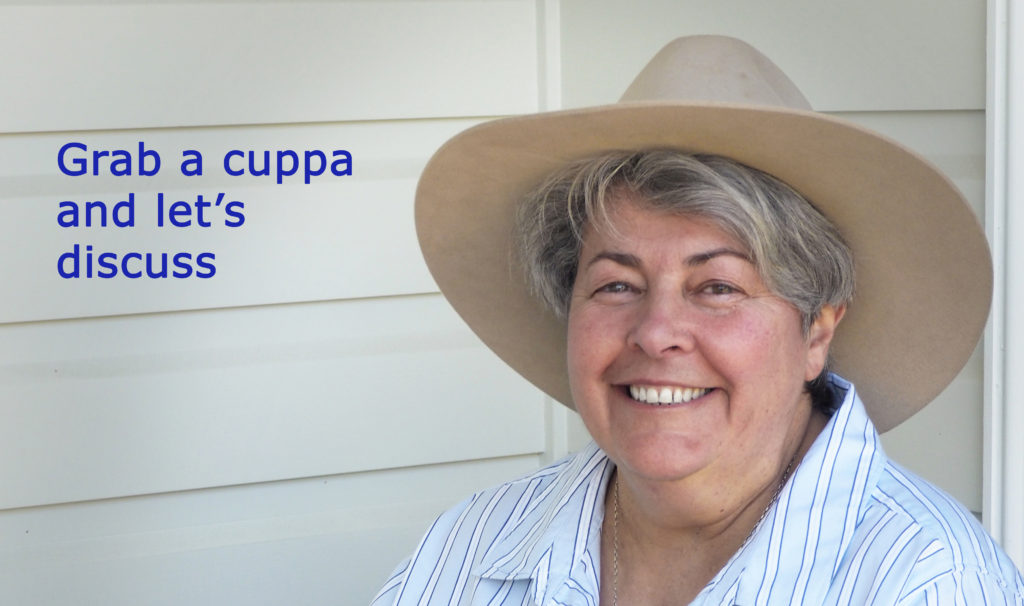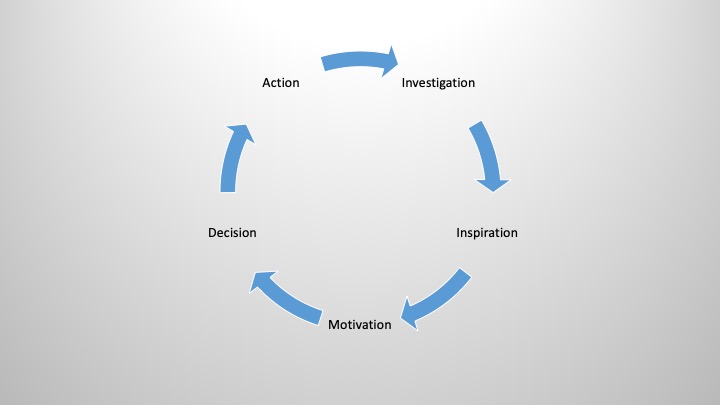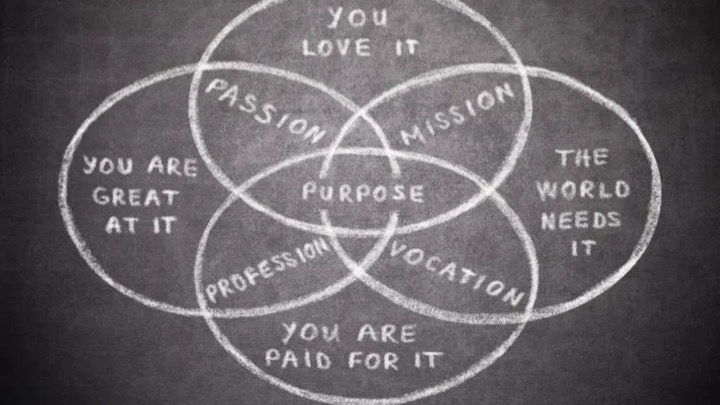- Part 1 – Does finding your Life Purpose still have relevance in this day and age?
- Part 2 – About our Life Purpose
- Part 3 – 7 Steps to Identify your Personal Values
- Part 4 – To Craft Your Purpose First Find Your Passion
- Part 5 – Finding your Passion and Building your Purpose Statement

Type this in as a search in the google brain and take a look at the responses you get. My concern with most of the approaches being suggested is that they seem to imply that the path to finding our passion can be achieved by rationalising and analysing a bunch of data and magically our passion will appear. I am not convinced that this is the path. I don’t see finding our passion as a desktop audit – do you?
I mean we are talking about our passion. Surely that in itself means we need to do more, doesn’t it?
What is Passion?
When you go to the dictionary and look up the word passion – apart from the obvious explanations you get, you also get something that goes like this:
“a strong feeling of enthusiasm or excitement for something or about doing something”

So, if passion is about “feeling” then using an analytical method to rationalise our way to finding ours is, I think, not really going to get us there.
Right Professor Smarty Pants, how do you suggest we go about it then I hear you say?
Bloody good question.
What is going to bake your noodle is that everyone of us already knows our passions, we are just choosing to ignore them. You see we all spend a good portion of the day awake and doing stuff. I figure that at least some of that time is spent doing stuff we are passionate about because not every hour of every day is spent “working for the man”. What do you choose to do with the other time you have each day. I just bet some of it is spent pursuing the things you are passionate about.
So I think we need to use our analytical mind to create the list of the stuff we do and are passionate about. But I think the critical step in all this and the one we are missing is that once we get to our “shortlist” of passions we need to apply the “feeling” test.
I think we need to set the standard as something like this:
When I think about dedicating my life to this thing am I getting this strong feeling of enthusiasm or excitement?
That means we need to sit with our ideas for a while, internalise them and really pay attention to our responses. When I think about this thing am I smiling, do I feel a sense of calm or peace or right wash over me, is my mind racing at a 100 miles an hour trying to figure out how we make this happen, am I constantly circling back to thinking about this thing throughout the day whenever I let my mind wander?
If it doesn’t pass this test, then we need to keep looking would be my guess.
We better put some parameters around this “strong feeling of enthusiasm or excitement” or we are going to get confused.
Before we discuss some analytical approaches to figuring out this problem we need to put some caveats around this strong feeling of enthusiasm or excitement.
The Author of Eat, Prat, Love, Liz Gilbert, has an interview on YouTube where she makes the comment “Everything in life comes with its own version of a shit sandwich”. This reminded me of a really useful post by Mark Manson (“The Subtle Art of Not Giving a F*ck”) that I came across when I was going through my own search on this topic. Mark poses a series of questions, 3 of which I think help us to define the parameters of this strong feeling:
- WHAT’S YOUR FAVOURITE FLAVOUR OF SHIT SANDWICH AND DOES IT COME WITH AN OLIVE?
- WHAT MAKES YOU FORGET TO EAT AND POOP?
- HOW CAN YOU BETTER EMBARRASS YOURSELF?
Now we know how to identify the feeling when it slaps us behind the ears, let’s get on with finding our passion
For clarity:
Passion = things you love to do + things you are good at or getting good at + things that give you a really strong feeling of enthusiasm or excitement
Remember, I said that finding our passion wasn’t a desktop audit? Well, that still holds true. Finding our passion, that thing that we are prepared to struggle for, expend all our energy and resources in achieving and go through any amount of “oh bugger” moments for, is not going to be found sitting on the couch.
What we have to understand is that passion is the result of action, not the cause of it. 1 2
Discovering our passion is really a suck it and see type of process. This is because we can’t possibly know how something makes us feel until we actually do it. Bit of a Catch 22 situation. Therefore, our process is going to look like this:

Investigation
Finding our talents; building your list of “things”
What are things we have a natural aptitude for and really enjoy doing? The things, that when we do them we are happily occupied for hours.
Remember, we are suspending any assessment of whether we think we are good at this talent or not – expertise is simply consistent practice over time. If we are not at the standard we want to be at, that is just a timing issue, it isn’t a talent issue.
For me I found that I had to suspend my natural desire to assess my talent against some standard I had set that represented to me that “I am talented” to get into this step. Once I did that I ended up with a pretty good list:
- Guitar playing
- Landscape photography
- Mechanics
- Carpentry
- Baking
- Decorating
- Writing
- Researching
- Self sufficiency
- Bush craft
- Etc etc
Am I an expert at all of these things – absolutely not. I am certainly better at some then others, but I started at a zero base for all of them and it is only time and consistent practice that has progressed each. Clearly, they are things I am interested in because I dedicate time, effort and other resources to them.
Inspiration
Let’s return to Mark Manson for this section:
- WHAT IS TRUE ABOUT YOU TODAY THAT WOULD MAKE YOUR 8-YEAR-OLD SELF CRY?
- HOW ARE YOU GOING TO SAVE THE WORLD?
Motivation
Decision
Mark Manson can help us out here to:
Action

This is where the rubber hits the road. In Marie Forleo’s book “Everything is Figureoutable” she explores the relationship between “can’t” and “won’t”. What she says is excuses (can’t) are the little lies we tell ourselves so that we don’t have to be accountable for our actual actions (won’t).
For example; I keep telling myself I need to get fit. I work out all the steps (actions) and then I invariably say something like “I can’t go for that walk today because I am to busy with work” or “I can’t go to the gym today because I haven’t got time”.
By the way this is a real example for me.
What I am doing here is lying to myself. I am being irresponsible. If I actually change these statements to “I won’t go to the gym today” or “I won’t go for that walk today” fullstop, then I am being honest to myself and in doing that I can identify what is working for me and what isn’t.
What else does this tell me? Clearly this plan that I have isn’t working for me and if getting fit is still something I am inspired and motivated to do then I better figure out something that is going to work for me.
What I did was think about what I loved to do as a kid physically and I remembered how much I loved riding my bike and walking in the bush. New plan:
Dust off my old bike and get on it – magic – now I am doing regular and consistent activity and my fitness is improving. Also, I magically have time in my day to go bike riding – who would have thought!!
Final thought on this – if we find that every plan we make to bring an inspiration to life results in our little voice saying “I can’t because ….” then I think this means that this is simply not a passion for us. It doesn’t ignite the feeling we are looking for.
Back to Inspiration
By taking action, that is by doing something, we open up opportunities that in turn lead to more inspiration.
Get off the couch and get amongst it baby!
Finding your passion requires you to physically participate – get off the couch and get amongst it.

Remember Passion is found at the point where the things we love to do and the things we are committed to getting good at meet.
Passion is the compelling emotion behind our dreams, our vision. MRI scans have shown that when a person is doing something they love, regardless of how well they are doing it, their brain lights up with synapses firing off everywhere.
Passion informs Purpose
Finding your purpose, as we know, leads to fulfilment and a thriving life because it allows us to connect to something larger, to provide service. To commit to our life purpose we better be damn sure it is something we are passionate about don’t you think!
Pulling it all together
Remember that a purpose statement has 2 sides:
TO…
SO THAT…
TO = our values and the behaviours we have identified that align to those values for us
SO THAT = our passion
So, we now have all the elements we need to pull together our purpose and our last piece of work is to sit down with pen and paper and craft our purpose statement.
Do not expect that you will get this right immediately – it will likely take several iterations and fine-tuning. It did for me.
Once you get to a point where you think you have it, take note of your feelings, does it feel right, do you feel excited, calm, have clarity, energised – all of these are markers that you are getting pretty close.
At this stage put your pen down and read it out aloud several times. Imagine yourself saying this to someone you know and someone you don’t. Can you speak it as “your truth”; with conviction and without trying to explain or justify it?
If so you are there.
If not, you still need to do some more work on this. Remember the reason we are doing this work is to answer the question “why am I here”. If, when you speak this out loud, you cringe or it is uncomfortable, then you are not there yet – keep going, it is only a few more tweaks away.
Where did I end up on this journey?
Having done all this work myself I want to share my purpose with you. When I got to this point I had this overwhelming sense of calmness wash over me, a sense of relief and peace, like I finally understood what I was here for and how I was going to serve and therefore achieve my thriving life.

Let’s be loud and proud about our purpose statements, we have certainly worked hard to get to this point. Share your purpose statement here in the comments below, I would love to read them and find out how you got to it.
- Wrzesniewski, A., McCauley, C., Rozin, P., & Schwartz, B. (1997). Jobs, careers, and callings: People’s relations to their work. Journal of Research in Personality, 31(1), 21–33.↵
- Newport, C. (2012). So Good They Can’t Ignore You: Why Skills Trump Passion in the Quest for Work You Love. Business Plus.↵
This is the last part in this series about how to define your purpose. If you would like to know more about what a Life Purpose is and why we should have one, please read my previous posts.
Available below is a link to an eBook on this series.
Take care and talk soon.
Thrive; don’t just Survive with Janette
